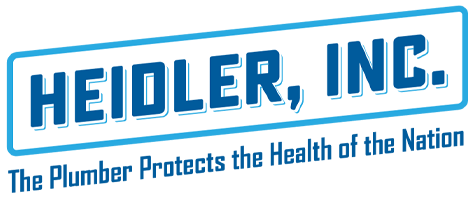DIY Wet Wipes (Why Flushing Regular Wipes Will Clog Your Drains)
Though the manufacturers of wet wipes claim they are perfectly suitable to flush down the toilet, the fact is the wipes pose a number of hazards to those who send them down the drain on a regular basis.
Also known as baby wipes, they have become much more common in households in recent years. In fact, sales of wet wipes have risen by 23 percent in the past five years, amounting to more than $370 million being spent by consumers.
However, in addition to spending millions of dollars per year to purchase the wet wipes, consumers are also spending millions of dollars per year on plumbing repair bills. Everything from toilet repair to drain cleaning is being done by plumbers in an effort to correct the problems caused by wet wipes, costing consumers lots of money and plenty of inconvenience along the way.
If your household is a regular user of wet wipes, here are some reasons why flushing these wipes down your toilet will produce clogged drains.
 Do Wipes Disintegrate?
Do Wipes Disintegrate?
While everyone who flushes a wet wipe down the toilet assumes it will disintegrate the same as toilet paper, that is not always the case. In fact, it’s almost never the case.
Most brands of toilet paper, even ones that are of lesser quality, generally dissolve within 24 hours of being flushed. However, wet wipes don’t work that way. In many instances, wet wipes have been found to be almost indestructible once flushed.
According to plumbers, many wet wipes can stay fully intact within pipes and drains for weeks or even months, which usually leads to very large clogs forming due to the constant buildup of wipes being flushed. To show just how tough these wipes are, researchers have conducted tests where the wipes were put into a blender for up to 10 minutes.
Surprisingly, after 10 minutes the wipes were hardly damaged, proving they can indeed stay fully intact within a pipe for a long period of time. To make sure this does not happen in your pipes, plumbers recommend disposing of wipes in a trash can.
Creating a Fatberg
If a wet wipe is not simply sitting around in a pipe failing to disintegrate, it’s probably working together with grease, fat, and other dirt and grime to cause what plumbers refer to as a “fatberg.” Named that for their similarity in size to icebergs, plumbers have regularly found themselves attempting to remove these very large clogs from pipes and drains. Some of the clogs have been well over 10 feet long, and in some cases have weighed almost one hundred pounds.
Along with being found in residential homes, fatbergs are often found in water treatment plants. When they make it that far, they often damage sensitive equipment and lead to thousands of dollars in repairs.
When smaller versions of these clogs are found in residential pipes, plumbers call them “softball clogs” because the clogs are comprised almost solely of the wipes and look like a softball has been flushed down the toilet.
The Web of Wipes
If a home is older and has pipes that have been in place for many decades, there can be some unusual problems that result from wipes being flushed down the toilet. In these instances, the pipes may have corroded over the years and thus have small holes in them.
If there are tree roots nearby, chances are they have found their way into the pipes and created a web-like structure inside the pipe. Thus, when the wet wipes are flushed down the toilet and enter the pipes, they get tangled up in the tree roots and form a wall of wipes that nothing else can penetrate.
When this happens, a plumber will need to be called in for drain cleaning and toilet repair in an effort to correct the problem. In many cases, the damage may be so great that the entire plumbing system will need to be replaced, costing thousands of dollars.
To make sure this does not happen in your household, it’s a good idea to have the plumbing checked by a professional plumber, especially if the plumbing system is very old.
 Wipes and Your Septic Tank
Wipes and Your Septic Tank
While wet wipes can cause plenty of damage to a plumbing system that is part of a city’s water and sewer system, they can do even more damage to one that is not.
For people who use a septic tank, flushing wipes down the toilet is one of the worst things they can do to their home’s plumbing. This is because when the septic tank gets clogged, it will backup into the home, spilling sewage into the bathroom and creating a mess that smells terrible and costs hundreds or thousands of dollars to clean up.
In some cases where the overflow is extremely bad, some plumbers will recommend the septic system be replaced with a newer model designed to prevent future clogging. However, no matter what type of septic system is used, if the wipes are continually flushed down the toilet, the same problems will present themselves over and over again.
Contact a Plumber
If you find yourself beginning to have problems with your plumbing, they may be due to having a clog of wet wipes in your pipes. Whether it’s a “softball clog” or a “fatberg,” it will need the expertise of a plumber to correct the problem.
In many cases where these clogs have been found, they have actually exerted enough pressure on the pipes to make them burst. In these situations, the repair bill will often be well over $1,000 in order to replace the damaged pipes with ones that are more resistant to clogs, such as PVC pipes.
Rather than let this happen in your home and cause you tremendous levels of inconvenience, schedule an appointment with a plumber as soon as possible.
For acclaimed drain cleaning services in your Annapolis, MD home, please contact Heidler, Inc. at (410) 268-7191 today.
